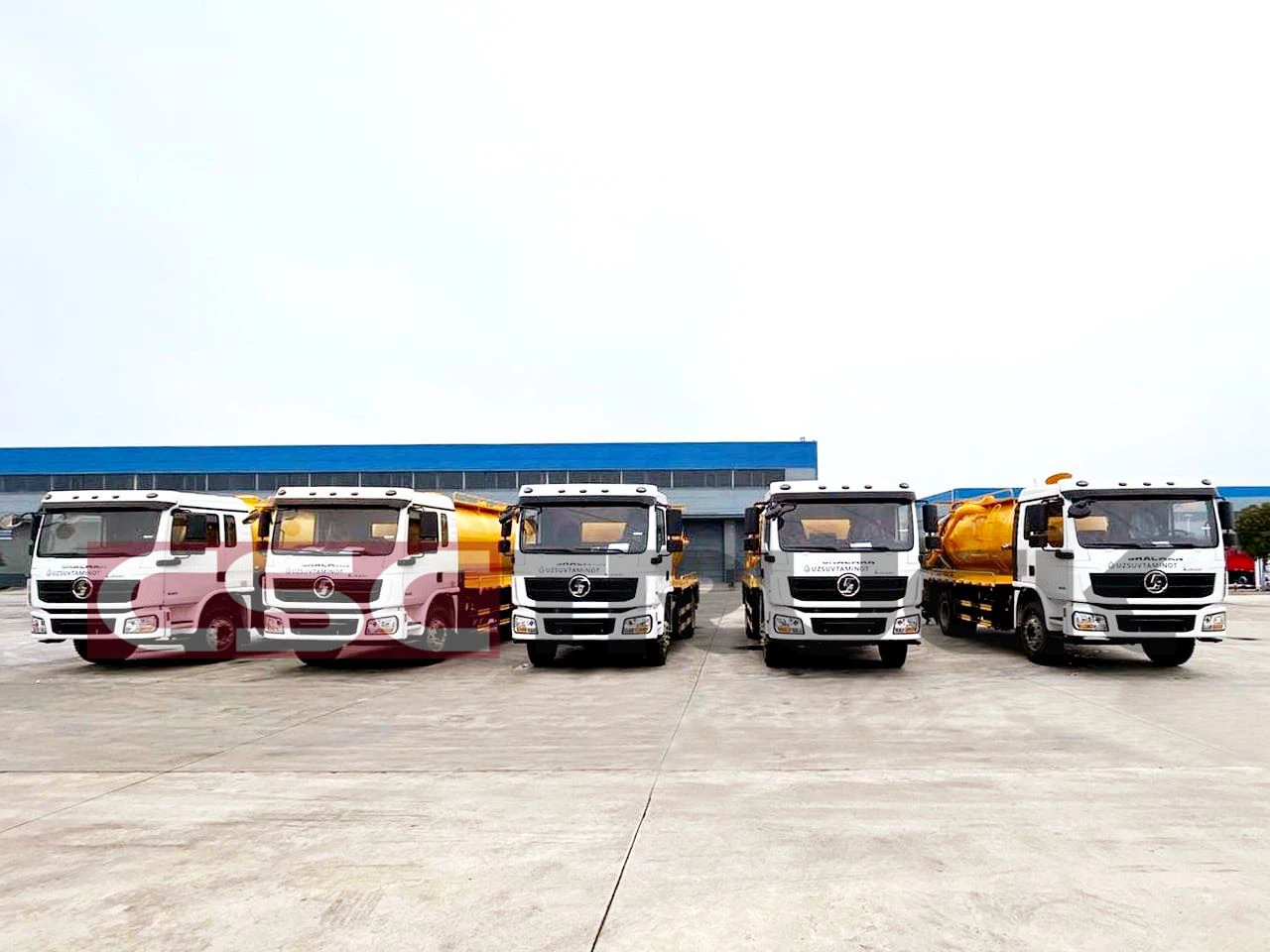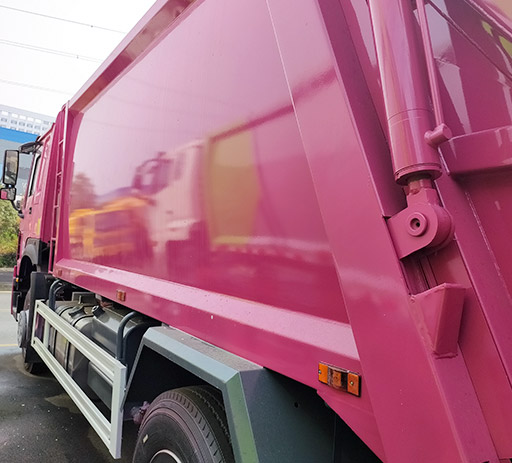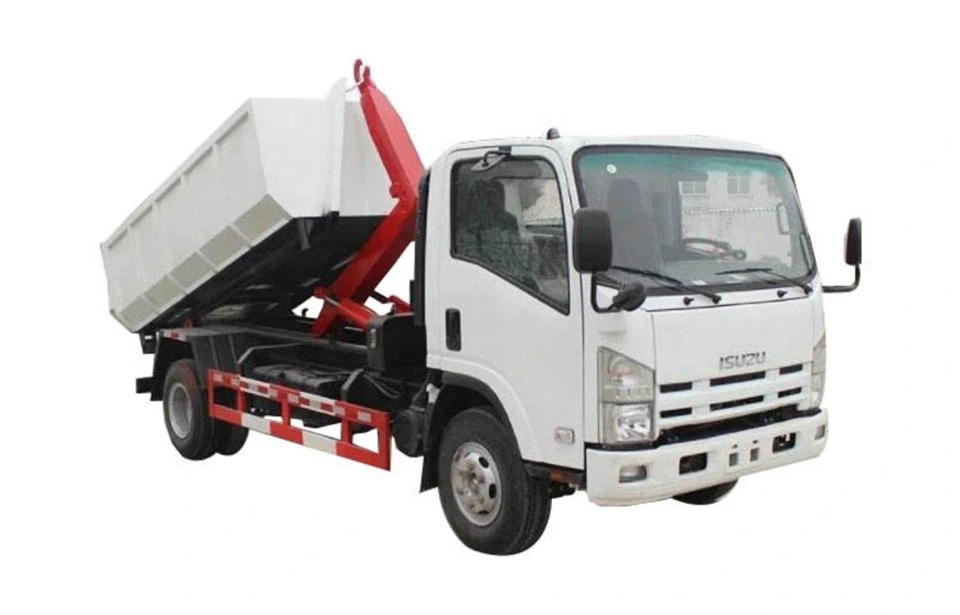Understanding the Cost of Garbage Trucks: A Comprehensive Guide

When it comes to municipal budgeting and waste management, understanding the cost of garbage trucks is essential. With a variety of options available, each suited for different operational needs, it can be challenging to navigate the diverse pricing, financing options, and long-term expenses associated with these vehicles. In this article, we will delve into the nuances of garbage truck costs, factors influencing those costs, and practical tips to consider before making a purchase.
The Importance of Garbage Trucks in Waste Management
Garbage trucks play a crucial role in maintaining public health and environmental cleanliness. They are the backbone of effective waste management, ensuring that solid waste is collected and transported efficiently. Beyond their function, understanding their cost implications can help municipalities and businesses budget effectively.
Types of Garbage Trucks
Understanding the different types of garbage trucks can give insight into their costs. Common types include:
- Front Loaders: Typically used for commercial waste collection.
- Rear Loaders: Commonly used for residential waste collection.
- Side Loaders: Chosen for their efficiency in residential areas and automated collection.
- Suction Trucks: Used primarily for liquid waste and specialty services.

Average Cost of Different Types of Garbage Trucks
| Type of Garbage Truck | Average Cost |
|---|---|
| Front Loader | $150,000 – $300,000 |
| Rear Loader | $100,000 – $250,000 |
| Side Loader | $150,000 – $350,000 |
| Suction Truck | $200,000 – $450,000 |
Factors Influencing the Cost of Garbage Trucks
1. Size and Capacity
The size and capacity of a garbage truck greatly influence its cost. Larger trucks can carry more waste, which makes them more expensive but also more efficient in high-density areas.
2. Build Quality and Material
The materials used in manufacturing the truck, such as steel or aluminum, can also affect costs. Higher-quality materials often come with a higher price tag but lead to durability and longer lifespans.
3. Technology and Features
Modern garbage trucks come equipped with advanced features, like GPS tracking, automated lifting mechanisms, and onboard compaction systems. These can add significantly to the initial purchase price but may improve efficiency and reduce long-term costs.

4. Maintenance and Repair Costs
The long-term costs of owning a garbage truck include regular maintenance and potential repairs. Some brands or models may require more frequent or costly repairs than others, influencing the overall cost of ownership.
5. Fuel Type
Garbage trucks can be powered by diesel, natural gas, or even electricity. Each fuel type presents its own initial costs, operational expenses, and environmental impacts. Electric garbage trucks, for instance, may have a higher upfront cost but could save on fuel and maintenance in the long run.
6. Financing Options
The cost of garbage trucks can also be affected by financing options available. Leasing or financing can lower upfront costs but may result in higher long-term expenses due to interest payments.
Cost of Garbage Trucks: New vs. Used
Deciding between purchasing a new or used garbage truck can significantly impact costs. Here’s a breakdown:
New Garbage Trucks
New trucks come with the latest technology, warranties, and often better fuel efficiency. However, they carry higher initial costs which can range from $100,000 to over $500,000 depending on the type and features.
Used Garbage Trucks
Purchasing a used garbage truck can be a cost-effective alternative. Prices can range from $20,000 to $150,000. However, buyers should be cautious about maintenance history and potential future repair costs.
Comparison Table: New vs. Used
| Aspect | New Garbage Trucks | Used Garbage Trucks |
|---|---|---|
| Cost Range | $100,000 – $500,000+ | $20,000 – $150,000 |
| Warranty | Usually Included | May Not Be Available |
| Technology | Latest Features | Older Technology |
| Fuel Efficiency | Higher | May Vary |
Making Financial Decisions: Budgeting for Garbage Trucks
When budgeting for the cost of garbage trucks, consider several key strategies:
1. Calculating Total Cost of Ownership
Look beyond the initial purchase price and factor in maintenance, insurance, fuel, and potential financing costs. Use a total cost of ownership model to better understand your investment.
2. Exploring Funding Opportunities
Grants, low-interest loans, and other financing options may be available for municipalities looking to upgrade their waste management systems. Research local and federal programs that could assist with funding.
3. Creating a Maintenance Plan
Establish a proactive maintenance plan to prevent costly repairs and extend the lifespan of your garbage truck. Regular check-ups and timely servicing are crucial.
Practical Tips for Purchasing a Garbage Truck
1. Research Brands and Models
Take the time to compare different brands and models. Look for reviews and testimonials from other buyers to gauge reliability.
2. Test Drive Before Purchase
Whenever possible, test drive the garbage truck to assess its ease of operation and comfort for drivers.
3. Consider Resale Value
Some models hold their value better than others. Research expected resale values to make an informed purchasing decision.
Frequently Asked Questions (FAQ)
1. What is the average lifespan of a garbage truck?
The average lifespan of a garbage truck is usually between 10 to 20 years, depending on usage and maintenance practices.
2. How can I finance the purchase of a garbage truck?
Financing options include loans from banks, leasing arrangements, or municipal funding options. Always compare rates and terms to find the best fit.
3. Are there low-emission garbage trucks available?
Yes, many manufacturers offer low-emission garbage trucks powered by natural gas or electric options, reducing their environmental impact.
4. What are the ongoing costs of maintaining a garbage truck?
Ongoing costs can include fuel, insurance, routine maintenance, and potential repairs. It’s important to budget for these items in addition to the purchase price.
5. Can I buy a garbage truck for personal use?

While it’s not typical, you can purchase a garbage truck for personal use. However, consider the operational costs and your need for such a vehicle.
6. Where can I find reliable sources to purchase a garbage truck?
Check with local dealerships, online classified ads, auction sites, or directly with manufacturers for reliable options in purchasing garbage trucks.
